How to Become a Certified Data Analyst: Jobs, Skills, Salaries

Are you ready to unlock the secrets hidden within mountains of information? Then, data analysis is the field for you! It's the art of extracting insights from data to solve problems and make informed decisions. Think of it as turning raw numbers into actionable knowledge! The demand for skilled data analysts is skyrocketing! You'll be in high demand across various industries, from healthcare to finance to marketing. Plus, the earning potential is excellent!
But where do you begin? Don't worry; this interactive guide will be your roadmap to becoming a certified data analyst.
Why is data analytics a demanding career path?
As organizations recognize the competitive edge provided by insightful data analysis, there's a growing need for professionals skilled in interpreting complex datasets. The continual evolution of technology, with the integration of machine learning and artificial intelligence, has further heightened the demand for data analytics expertise. This demand extends across various industries, amplifying the versatility and applicability of data analytics roles. The global impact of data analytics and the continuous need for learning and adaptation in a dynamic field make it intellectually stimulating.
What is a certified data analyst?
Is taking data analyst certification mandatory? This might be a standard question winding our minds, but we must understand that the certification path is predominately accepted across various industries, even globally.
This certification course will help you become an IT professional and impart the knowledge of collecting, reviewing, and analyzing large amounts of data. Moreover, you will learn to find data patterns and develop a plan to improve performance.
Where do data analysts work?
Businesses across all industries are increasingly relying on data to make informed decisions. Data analysts are crucial in collecting, analyzing, and interpreting data to provide actionable insights that drive strategic and operational decision-making.
Companies seek to gain a competitive edge by leveraging data to understand market trends, customer behavior, and operational efficiency. Data analysts help organizations identify growth opportunities, optimize processes, and stay competitive.
Data analysts work in various industries, including finance, healthcare, technology, retail, and consulting. Large corporations, government agencies, non-profit organizations, or work as independent consultants can employ them. Many data analysts also work remotely or in a hybrid work environment.
Data analyst: Typical roles and tasks
The typical role of a Data Analyst varies depending on the specific industry, organization, and the focus of the data analyst's role. However, the core responsibilities typically involve collecting, analyzing, and interpreting data to provide actionable insights supporting business objectives and decision-making.
- Data Collection: Gathering and compiling data from various sources, including databases, spreadsheets, and other data repositories.
- Data Cleaning and Preprocessing: Ensuring data quality by cleaning, filtering, and preprocessing raw data to remove errors, inconsistencies, and missing values.
- Data Analysis: Using statistical and analytical tools to explore and analyze data, identify patterns, correlations, and trends, and derive meaningful insights.
- Data Visualization: Presenting data findings through visualizations such as charts, graphs, and dashboards to effectively communicate insights to stakeholders.
- Reporting: Creating reports and summaries of data analysis findings to support decision-making and strategic planning within the organization.
- Predictive Modeling: Building predictive models to forecast future trends, outcomes, or behaviors based on historical data and statistical techniques.
- Data Mining: Identifying patterns and relationships within large datasets to uncover valuable information and support business objectives.
- Database Management: Managing and maintaining databases, ensuring data integrity, security, and accessibility for analysis.
- A/B Testing and Experimentation: Designing and conducting experiments to test hypotheses and evaluate the impact of changes on business metrics.
- Collaborating with Stakeholders: Working closely with business leaders, managers, and other teams to understand their data needs, provide insights, and support decision-making processes.
- Continuous Improvement: Staying updated with the latest data analysis techniques, tools, and best practices and continuously improving analytical processes.
- Data Governance: Ensuring compliance with data privacy regulations and organizational data governance policies to maintain data security and integrity.
Skills required for data analyst careers
Becoming a data analyst requires combining technical, analytical, and soft skills. Here's a breakdown of the key areas to focus on:
Technical Skills:
- Programming: Python and R are the dominant data analysis languages, with SQL essential for accessing and querying databases. Familiarity with other languages like Java or Scala can be an advantage.
If you intend to take a programming language course, Sulekha is your gateway to a thriving career in data analytics!
- Data wrangling: This involves cleaning, organizing, and manipulating data to prepare it for analysis. Tools like pandas in Python and dplyr in R are helpful here.
- Statistics and probability: Understanding basic statistical concepts like mean, median, standard deviation, hypothesis testing, and regression analysis is crucial for drawing meaningful insights from data.
- Data visualization: The ability to create clear and compelling charts, graphs, and dashboards to communicate your findings effectively is essential. Tools like Tableau, Power BI, and Matplotlib are popular choices.
- Database management: Familiarity with relational databases and querying languages like SQL is vital for extracting and working with data.
Analytical Skills:
- Critical thinking: Data analysts must ask the right questions, identify patterns and trends, and draw logical conclusions from data.
- Problem-solving: Data analysis often involves solving complex problems using the available data. The ability to think creatively and approach problems from different angles is crucial.
- Domain knowledge: While not always required, knowing the specific industry or domain you're working in can significantly enhance your ability to interpret and analyze data.
Soft Skills:
- Communication: Strong written and verbal communication skills are essential for presenting your findings to stakeholders and collaborating with other teams.
- Attention to detail: Data analysis often involves working with large datasets and identifying minor inconsistencies or errors. Meticulous attention to detail is critical.
- Teamwork: Many data analyst roles involve working as part of a team with developers, business analysts, and other professionals. Collaboration and teamwork skills are crucial.
- Creativity: Data analysis is not just about crunching numbers. The ability to think creatively and explore different problem-solving approaches is highly valued.
Additional Skills:
- Machine learning: With the growing importance of AI and machine learning, basic knowledge of these concepts can be a valuable asset.
- Cloud computing: Familiarity with cloud platforms like AWS, Azure, and GCP can be beneficial for working with large datasets and scalable computing resources.
- Big data tools: If you're interested in working with massive datasets, knowledge of tools like Hadoop and Spark can be helpful.
How do you become a data analyst?
There are several paths to becoming a data analyst, and the best approach depends on your background, experience, and learning style. Here are some steps you can consider:
1. Build your foundation:
- Math and Statistics: Brush up on your basic math skills and key statistical concepts like mean, median, and standard deviation. Online resources, courses, and textbooks can help.
2. Gain practical experience:
- Personal projects: Work on personal data analysis projects using publicly available datasets. This allows you to experiment, apply your skills, and build a portfolio.
- Freelancing and internships: Look for freelance data analysis opportunities or internship programs to gain real-world experience and work on practical projects.
- Kaggle: Join the online community of data scientists and participate in data analysis competitions to test your skills and learn from others.
4. Consider formal education:
- Bachelor's degree: Although not always required, a bachelor's degree in statistics, computer science, mathematics, or a related field can provide a strong foundation and make you more competitive in the job market.
- Bootcamps: Intensive data analysis boot camps offer immersive learning experiences and career guidance but can be expensive and time-consuming.
- Online courses and certifications: Specialized online courses and certifications can help you develop specific skills and validate your knowledge.
5. Network and build connections:
- Attend industry meetups and conferences to connect with other data analysts and learn from their experiences.
- Build your online presence through LinkedIn and showcase your skills and projects.
What are five certifications to consider when aspiring to become a data analyst?
To pursue a career as a data analyst, you can take the following steps and consider obtaining these five certifications.
- IBM Data Science Professional Certificate
- Microsoft Data Analyst Associate Certification
- Microsoft Certified Azure Data Scientist Associate
- Cloudera Certified Associate Data Analyst
- Google Data Analytics Professional Certificate
Data analyst salaries
According to Glassdoor, the average salary for a Data Analyst is $82,204 per year in the United States. The highest pay is $1,03,001 per year.
Related job roles and their salaries
Data analysts can transition into various related job roles as they gain experience and develop specialized skills. Here are some related job roles along with approximate salary ranges (salaries can vary based on factors like experience, location, and industry):
- Business Intelligence Analyst: $99,864 a year
- Data Scientist: $1,56,653 per year
- Data Engineer: $1,25,159 per year in the United States
- Marketing Analyst:$75156 per year in the US
- Market Researcher: $69993 per year in the US
- Operations Research Analyst: $116773 per year in the US
Certified data analyst jobs: Career progression opportunities
Data scientist: This is usually the next step after starting as a data analyst. In data science, you'll level up your programming, math, and machine learning skills to boost your confidence in analytics.
Specialist positions focus more on specific data analytics or science fields like healthcare or finance. Transitioning to a specialist position lets you hone a particular expertise after establishing a broader foundation.
Management positions: These are leadership roles. They're more challenging than other data analyst positions and might need higher education or extra certifications.
Chief Data Officer (CDO): As organizations prioritize data-driven decision-making, some data analysts may aspire to become Chief Data Officers, responsible for the overall data strategy and governance.
Consulting positions: Have you ever thought about being your boss? Consulting could be your thing. As a consultant, you'd work with different clients in various areas of expertise, often freelancing in a flexible, less specialized way. You'd need several years of experience to become an expert in general analytics to do this kind of work.
In conclusion, becoming a certified data analyst opens up a wide range of job opportunities across various industries, with the potential for career progression into specialized roles such as data scientist, analytics manager, or consulting. By honing programming, mathematics, and machine learning skills, data analysts can expect competitive salaries and the chance to take on leadership positions in data analytics.
Find a course provider to learn Data Analysis
Java training | J2EE training | J2EE Jboss training | Apache JMeter trainingTake the next step towards your professional goals in Data Analysis
Don't hesitate to talk with our course advisor right now
Receive a call
Contact NowMake a call
+1-732-338-7323Enroll for the next batch
data analysis bootcamp
- Dec 10 2025
- Online
data analysis bootcamp
- Dec 11 2025
- Online
data analysis bootcamp
- Dec 12 2025
- Online
Related blogs on Data Analysis to learn more
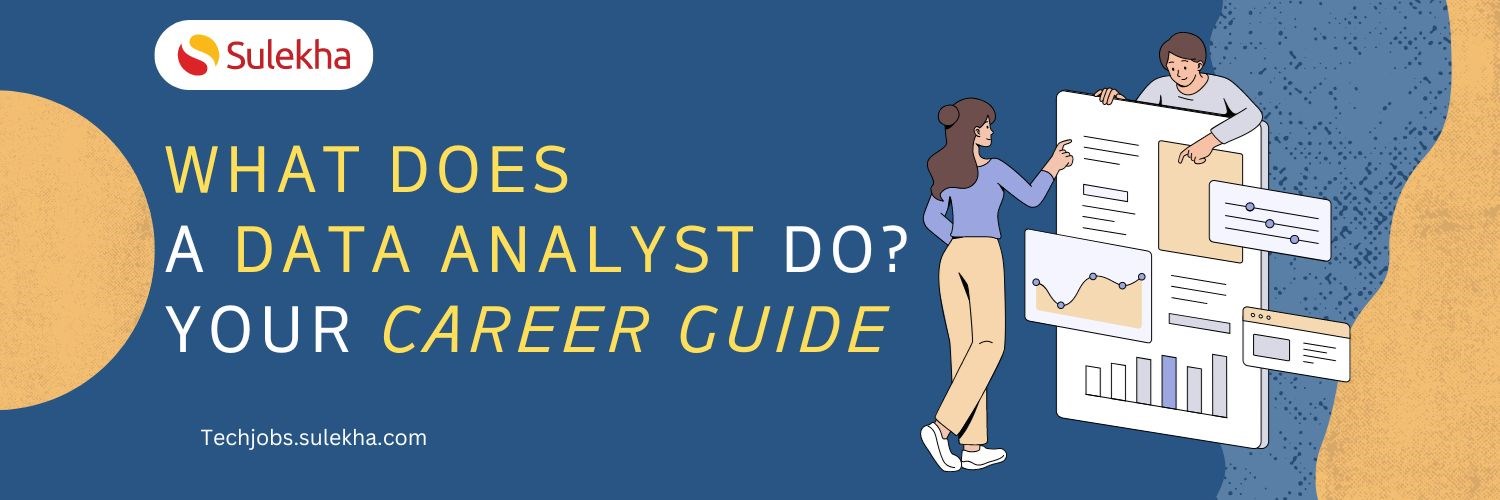
What Does a Data Analyst Do? Your Career Guide
Discover the role of a data analyst, including job description, responsibilities, and skills required as well as the importance of data analysts in today's data-driven world. We have also discussed skills and qualifications needed to become a succes
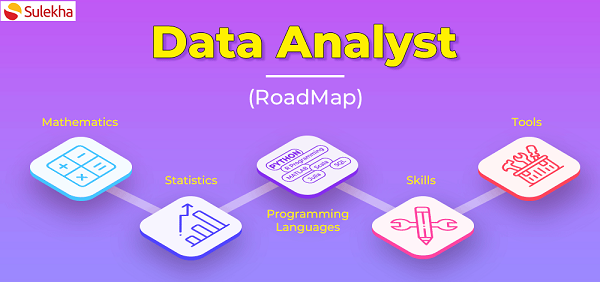
Learn the Power of Data – Data Analysis Master Course
Introduction Data analysis
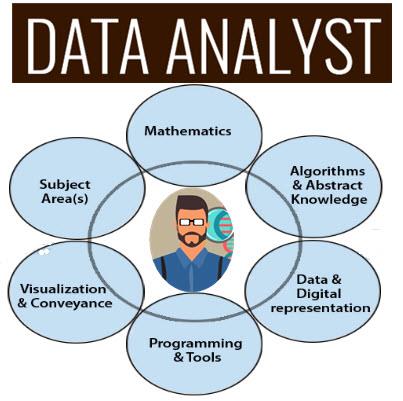
Who is a data analyst? Importance/ Awareness of Data Analyst
Data analyst is a professional who involves in the process of inspecting, cleansing, transforming and modeling data with the goal of discovering useful information, informing conclusion and supporting decision-making. This data analyst article gives

A Rejoinder from my College Diaries - Why Should I learn Data Analytics in Atlanta, GA
A Rejoinder from my College Diaries - Why Should I learn Data Analytics in Atlanta, GA

What is Streaming Data Analytics?
The days where the historical data analysis and batch reports conquered are through. Today’s word demands much smarter and powerful data analytics systems. Here comes the Streaming Data Analytics to the rescue. The Streams lets you process data as it

Passion drives you to become as a Data Analyst
If you can’t afford to fly, at least land on a sea to move on. Often people don’t get jobs based on their qualification. Then, by any chance or situation, they get placed in an IT firm. That’s how 80% of IT employees choose their career in IT in Indi
Latest blogs on technology to explore

From Student to AI Pro: What Does Prompt Engineering Entail and How Do You Start?
Explore the growing field of prompt engineering, a vital skill for AI enthusiasts. Learn how to craft optimized prompts for tools like ChatGPT and Gemini, and discover the career opportunities and skills needed to succeed in this fast-evolving indust

How Security Classification Guides Strengthen Data Protection in Modern Cybersecurity
A Security Classification Guide (SCG) defines data protection standards, ensuring sensitive information is handled securely across all levels. By outlining confidentiality, access controls, and declassification procedures, SCGs strengthen cybersecuri

Artificial Intelligence – A Growing Field of Study for Modern Learners
Artificial Intelligence is becoming a top study choice due to high job demand and future scope. This blog explains key subjects, career opportunities, and a simple AI study roadmap to help beginners start learning and build a strong career in the AI

Java in 2026: Why This ‘Old’ Language Is Still Your Golden Ticket to a Tech Career (And Where to Learn It!
Think Java is old news? Think again! 90% of Fortune 500 companies (yes, including Google, Amazon, and Netflix) run on Java (Oracle, 2025). From Android apps to banking systems, Java is the backbone of tech—and Sulekha IT Services is your fast track t
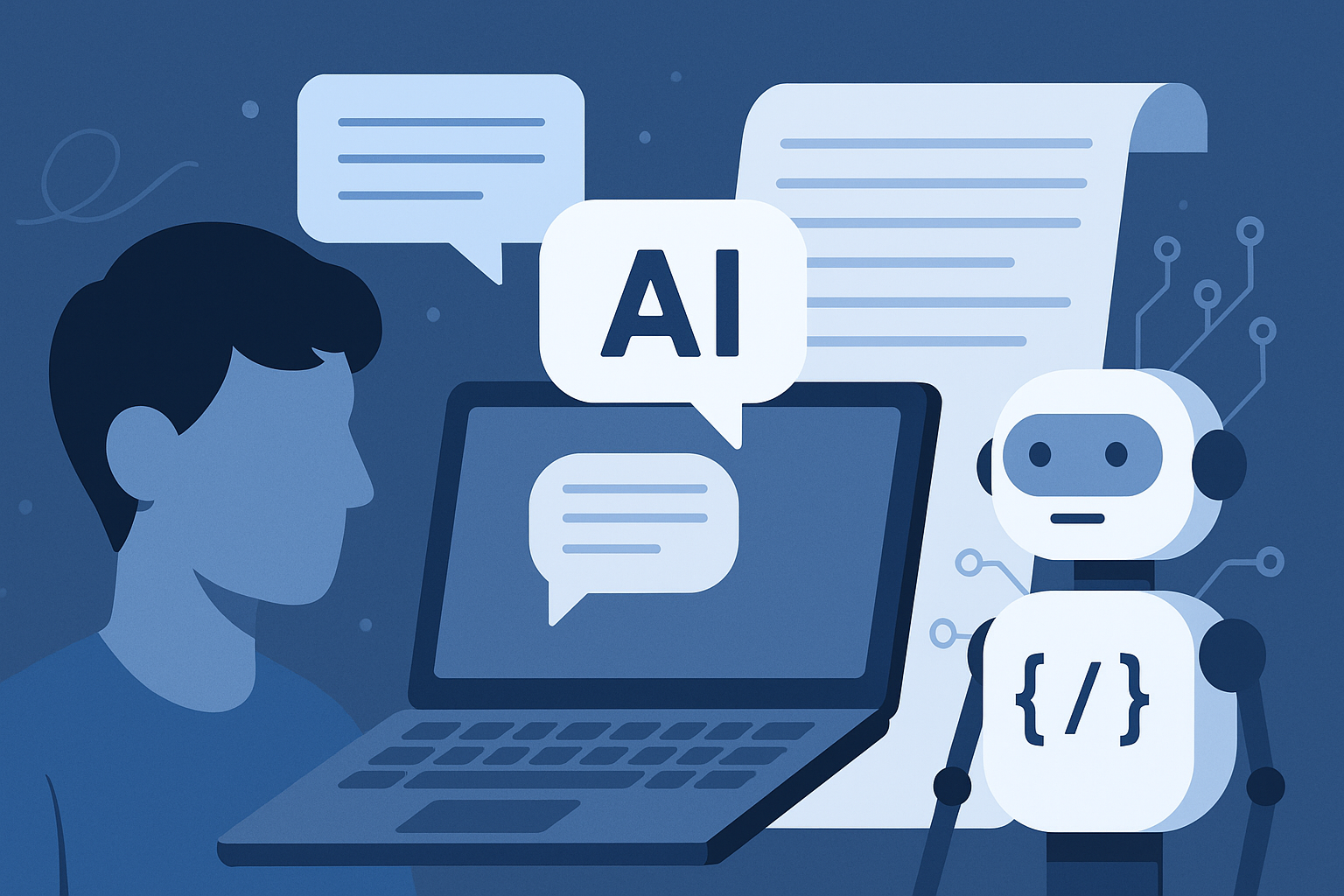
From Student to AI Pro: What Does Prompt Engineering Entail and How Do You Start?
Learn what prompt engineering is, why it matters, and how students and professionals can start mastering AI tools like ChatGPT, Gemini, and Copilot.

Cyber Security in 2025: The Golden Ticket to a Future-Proof Career
Cyber security jobs are growing 35% faster than any other tech field (U.S. Bureau of Labor Statistics, 2024)—and the average salary is $100,000+ per year! In a world where data breaches cost businesses $4.45 million on average (IBM, 2024), cyber secu

SAP SD in 2025: Your Ticket to a High-Flying IT Career
In the fast-paced world of IT and enterprise software, SAP SD (Sales and Distribution) is the secret sauce that keeps businesses running smoothly. Whether it’s managing customer orders, pricing, shipping, or billing, SAP SD is the backbone of sales o

SAP FICO in 2025: Salary, Jobs & How to Get Certified
AP FICO professionals earn $90,000–$130,000/year in the USA and Canada—and demand is skyrocketing! If you’re eyeing a future-proof IT career, SAP FICO (Financial Accounting & Controlling) is your golden ticket. But where do you start? Sulekha IT Serv

Train Like an AI Engineer: The Smartest Career Move You’ll Make This Year!
Why AI Engineering Is the Hottest Skillset Right Now From self-driving cars to chatbots that sound eerily human, Artificial Intelligence is no longer science fiction — it’s the backbone of modern tech. And guess what? Companies across the USA and Can
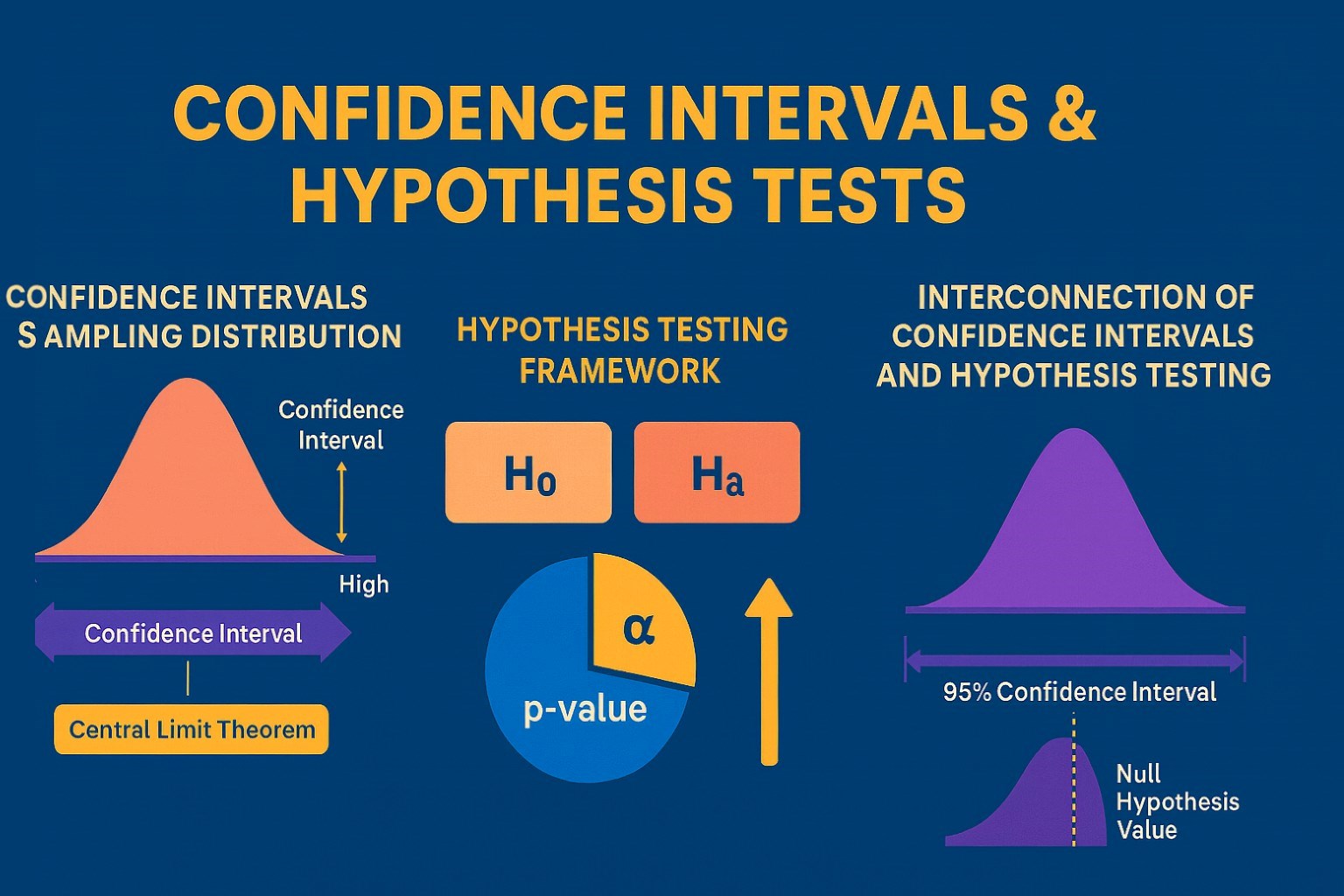
Confidence Intervals & Hypothesis Tests: The Data Science Path to Generalization
Learn how confidence intervals and hypothesis tests turn sample data into reliable population insights in data science. Understand CLT, p-values, and significance to generalize results, quantify uncertainty, and make evidence-based decisions.